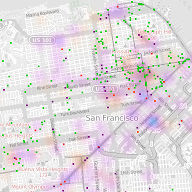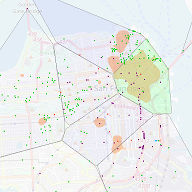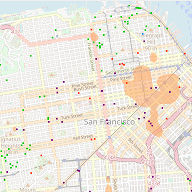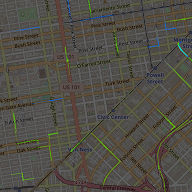Abstract: In an autonomous mobility-on-demand (AMoD) system, customers are transported by autonomously driving vehicles in an on-demand fashion. Although these AMoD systems will soon be introduced to cities, their quantitative analysis from a fleet management and city planning viewpoint remains challenging due to the lack of dedicated analysis tools. In this paper, we introduce AMoDeus, an open-source software package for the accurate and quantitative analysis of autonomous mobility-on-demand systems. AMoDeus uses agent-based transportation simulation frameworks to simulate arbitrarily configured AMoD systems with static or dynamic demand. It includes standard benchmark algorithms, fleet efficiency and service level analysis methods and a dedicated graphical viewer that allows in-depth insights into the system. Together with AMoDeus, we publish a typical simulation scenario based on taxi traces recorded in San Francisco. It can be used to test novel fleet control algorithms or as a basis to model more complex transportation research scenarios.




He that of greatest works is finisher
Oft does them by the weakest minister.
William Shakespear
In March 2018, we release the AMoDeus library as open source. The software is part of the publication AMoDeus, a Simulation-Based Testbed for Autonomous Mobility-on-Demand Systems. The simulation software was developed by Claudio Ruch, Sebastian Hoerl, and myself. Several students contributed as well: Joel Gaechter, Lukas Sieber, Nicolo Ormezzano, Andy Aumiller and Marc Albert.
The source code is hosted on github
| amodeus * |
|
link |
| amod |
|
link |
An animation of a traffic simulation in Zurich/Switzerland is visualized below.
I realized to my horror,
that I do not know
what a straight line is.
Roland Dobrushin